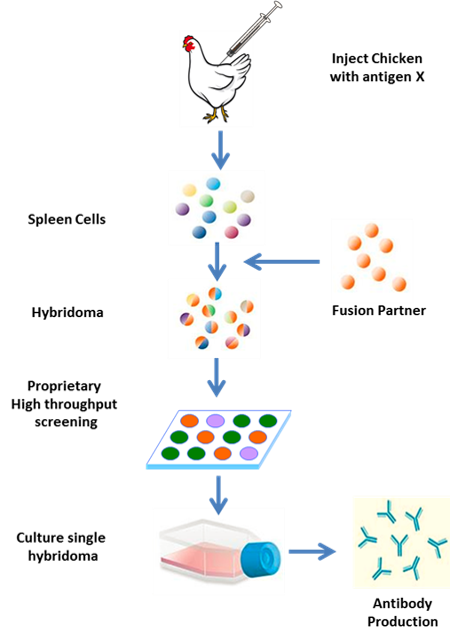Chicken Antibody

Unique and Proprietary Chicken Monolclonal Antibody Technology
Somru is currently developing a unique and proprietary method for making monoclonal antibodies using a chicken model rather than the conventional method of starting with mice. Chicken hybridomas are produced using the B-cells from immunized chickens and a fusion partner. Hybridomas are then screened to select for clones with specific and sensitive antigen recognition and the antibodies are characterized using a variety of methods.
Chicken monoclonal antibodies offer significant advantages over the current monoclonal antibodies generated using mammalian animal models (e.g. mouse, rabbit, etc.):
- More diverse epitope recognition: Due to phylogenetic differences between humans and chickens (~ 310 million years vs. 95 million years for mouse), the chicken immune system recognizes more epitopes on human proteins as foreign, and generates a more robust immune response. In addition, the chicken light is further diversified by somatic point mutation. This, combined with greater phylogenetic differences gives access to a more diverse antibody repertoire. It may therefore be possible to produce antibodies in chicken that are difficult or impossible to produce in a mammal.
- Avoiding interferences: Unlike mammalian antibodies, chicken antibodies do not bind to complement factors, human anti-mouse antibodies (HAMA), and mammalian or bacterial Fc receptors. This significantly improves the reproducibility and accuracy of immunoassay results.
- Superior stability: Chicken antibodies retain their activities for over 10 years at 4°C, for 6 months at room temperature, and for 1 month at 37°C.

We are currently seeking collaborators to validate this technology for various applications. If interested, please contact tec@somrubioscience.com.

